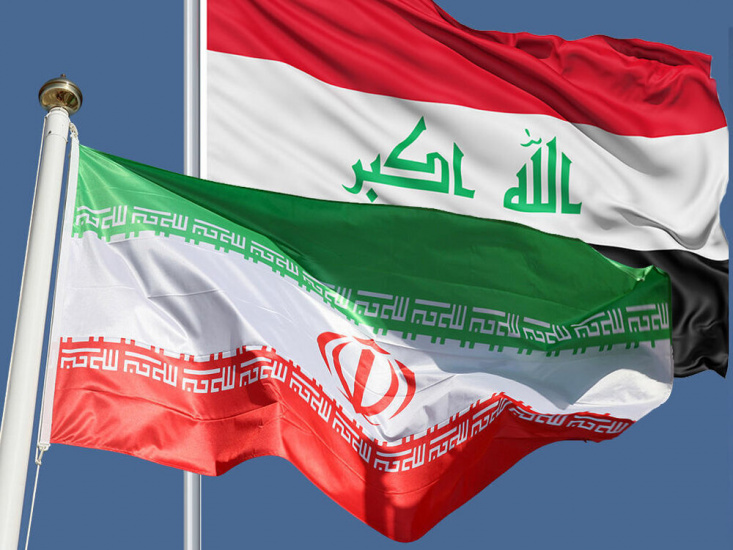Al-Kadhimi cannot convince Saudi Arabia and U.S. to reduce their hostility to Iran: Iraqi analyst

The Kadhimi's visit to Tehran preceded by a trip by Iranian Foreign Minister Mohammad Javad Zarif to the Iraqi capital Baghdad in response to the invitation of his Iraqi counterpart, Fouad Hussein, for consultation with senior Iraqi officials.
Some political experts consider the visit as a turning point, which will have positive results for the two sides.
Hussein al-Dirani, an Iraqi political analyst, told the Tehran Times that the visit by the Iraqi prime minister to Tehran has political, economic, and security aspects that concern both countries.
Iraq's new prime minister visited Iran in his first official visit abroad since taking office more than two months ago.
"We can say that he is going to visit two competing axes; the axis of resistance represented by the Islamic Republic and its allies, and the Saudi axis which is hostile to Iran and is consistent with U.S. policies," Dirany said.
"Kadhimi has relations with the two axes," the analyst said.
Given his extensive relations with Washington, Kadhimi is not reluctant to play the role of a mediator between Iran and the U.S., especially as he believes that the chronic tension between Tehran and Washington negatively affects the Iraqi internal security, economic and political condition.
"It is natural that he has a desire to play the role of mediator between Tehran and Washington. Without any doubt, he has strong affiliations with Washington and receives political, security, intelligence, and logistical support from the American administration," the Iraqi analyst noted.
"Washington did its best for him to be appointed as prime minister in Iraq, and I personally wrote in the first month of this year that he would be prime minister with American support and support by President Barham Saleh, who represents the Kurdish component in Iraq," he maintained.
Washington believes that Kadhimi is consistent with its goals and will collaborate to disarm Hashd Al-Shaabi, an Iraqi faction that challenges the American military presence in Iraq, stressed Dirani.
Hashd Al-Shaabi believes that U.S. troops, as an occupation force, must withdraw from the Iraqi territory based on the Iraqi parliament's decision that approved the draft for the expulsion of American forces from Iraq.
This is what Washington is seeking to block, yet the White House has failed to implement it, considering that the Iraqi faction is receiving support from Tehran, he further said.
U.S. officials argue that Tehran can pressure its allies in Iraq not to clash with the American forces, while "this is something that Tehran will not accept to ask its allies, not previously, not now, or in the future."
Answering a question about the success of Kadhimi in mediating between Iran and the U.S., Dirani said, "I do not expect Kadhimi to succeed in the mediation between the two sides, especially after the Americans persisted in their direct aggression against the Islamic Republic of Iran."
"He cannot reconcile the two sides; usually, in large files, the Sultanate of Oman has a better record because of its international negotiations experience," he maintained.
Referring to the recent events in Iraq, especially the attack on Hashd Al-Shaabi leaders and its consequences on Iranian-Iraqi relations, the political analyst said, "The Iranian side has important files to discuss with the Iraqi prime minister, including some security files."
Iranian officials have repeatedly said that Iraq's security and stability is a high priority. Iran was the first to respond to Iraq's call when terrorist organizations occupied large parts of the Iraqi territory. While Daesh was even advancing toward Baghdad, certain Arab countries neighboring Iraq, especially Saudi Arabia, were supporting terrorists militarily and financially.
"Iran sent its best military advisers to help the Iraqi army and the popular mobilization to liberate Iraq from Daesh, and a number of Iranians were martyred alongside their Iraqi brothers," the Iraqi analyst said.
"Iran is an important partner in defeating terrorist groups in Iraq, while other Arab countries are partners in supporting terrorism," he noted.
Dirani criticized the recent attack on the leaders of Hashd Al-Shaabi by the security forces associated with the Al-Kadhimi administration, believing it "almost led to a civil war", a war against those who fought terrorism in the country.
"This attack was at the request of the U.S. administration, and its implementation came to satisfy the American side and reassure it that the Iraqi government is serious in disarming Hashd Al-Shaabi," Dirani argued. “This weapon (Hashd Al-Shaabi) is loyal to Iraqi territory and rejects occupation."
Regarding his close ties with Washington and the accusations raised against Kadhimi, Dirani believes that "these accusations have not been raised in a vacuum, as the man has close ties with all the American intelligence forces."
In recent months, U.S. forces have shown open hostility toward Iran and all the factions of the resistance movement in Iraq, especially after they assassinated General Qassem Soleimani in a drone strike.
According to the Iraqi political analyst, Iraqi factions accuse Kadhimi of collaborating with the U.S. in the Soleimani assassination. "They have compelling evidence, and the documents that had been presented by the martyred commander Abu Mahdi al-Muhandis (before his assassination) confirm that some people close to the prime minister were involved in attempts to assassinate him."
"I think that the Islamic Republic deals with the Kadhimi government, just as it dealt with the government of Saad Hariri in Lebanon; Tehran cooperates to the extent that secures stability in Iraq," he concluded.
"Kadhimi also maintains wide relations with the American administration and its intelligence service, as well as his strong ties with Prince Muhammad bin Salman, the de facto ruler of the Saudi kingdom," Dirani mentioned. "I do not think that Kadhimi has an influence on the American or Saudi side to reduce their hostile positions to Iran."
Source: Tehran Times

